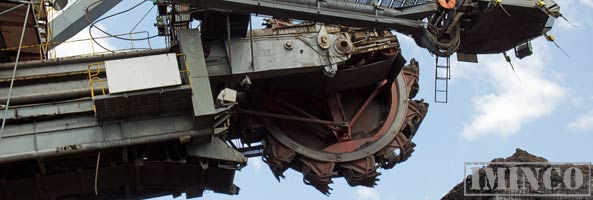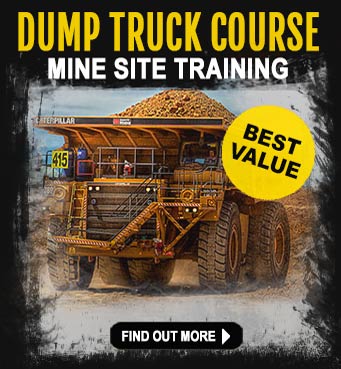
Global incidents create a rise in Australian coal exports.
Driven by the growth of the emerging markets of China and India, coal is set to surpass oil as the world`s top fuel source by 2017.
Japan hungry for NSW thermal coal
Japan’s electricity utilities bought 4.24m tonnes of coal from Australian producers in May 2013. This accounted for an increase of 22% more year on year – as the return of coal-fired power plants continue to drive Japanese imports above 2012 levels.
Coal imports also surged in April because of the start-up of the Hirono and Hitachinaka coal-fired electricity generators. The plants were switched off when Japan was hit by the devastating earthquake and tsunami that hit back in March 2011.
Japanese power generation utility companies consumed 4.14m tonnes of coal in May – almost as much as� it imported. This suggests Japanese utilities’ demand for coal will be strong in June, which is a positive sign for Australian coal mining companies who have agreements with Japan.
Japan imports most of its coal through long-term contracts with Australian mining companies. In early April mining company Xstrata Glencore and Japanese utility company Tohoku Electric agreed on an annual price of $95/tonne. This is about $11/tonne above current spot market prices at FOB (free on board) Newcastle ports. Japanese power and utility companies have a preference of locking in supply of high-grade coal and prefer to do this with Australian mining companies.
Australian Thermal Coal Highly Sought By Asian Customers
Australia has a rich resource of high quality thermal coal which is the preferred fuel for the world’s coal fired power stations. Recently, Coal India was locking horns with a major Indian power company�NTPC because it was supplied with low quality local coal that caused a variety of issues with their furnaces, causing power delivery problems.�NTPC is refusing to pay a debt of $178-million owed to Coal India.
Domestic coal supplies in populated countries are Australia’s gain in the long run. With bountiful reserves of the black gold, Australian coal mining companies have a bright future if the global economy stabilises and the coal reserves already mined and shipped to their destinations are depleted in a relatively short period of time.
Monthly statistics for the two Port Waratah Coal Services (PWCS) terminals at the Australian port of Newcastle – where most of Australia’s thermal coal is exported from – show 4.38m tonnes of thermal and coking coal was shipped to Japan in May.
No breakdown of the breakdown of shipments by country was proviced, however thermal coal overall accounted for 83% of exports from the PWCS terminals.
The impact of the Fukushima nuclear power station tsunami disaster – and the subsequent shut down of the country’s nuclear reactors, bar 2 has forced Japan’s electricity companies to increase heavy fuel oil and crude imports by 90% year on year in 2012.
Liquified Natural Gas (LNG) imports have also increased by 14% to 58.68m tonnes, to fill the gap left by nuclear power. Australia’s LNG processing facilities on Curtis Island could provide Japan with it’s domestic gas requirements, as well as other Asian countries like Korea.
Where the mining jobs are in Queensland
Tips on how to get a mining job in Queensland in the Bowen Basin and BMA’s Daunia coal mine in Queensland creates 100’s of additional mining jobs in the state.
Quick tips for mining employment success
- Learn about the coal mining industry in Australia. Research who the mining companies, what projects are underway and if the mines are open-cut or underground.
- Having completed the right training is so important. You must do a Mining Induction safety training course if you want to work on a mine site in Queensland. This is a Generic induction�Coal�(Standard 11) certification and will cover a wide range of topics including;
- occupational health and safety
- emergency escape procedures
- first aid
- training and assessment
- record keeping
- hazard management
- risk assessment
- record keeping
- reporting
- competency standards compliance
- site standard procedures
- fire fighting theory
- working around vehicles and machinery
- communications
- team operations
- introduction to mining terminology
- isolation; and
- tagging and atmosphere testing.
- The coal industry in Queensland requires you to be physically fit. You will be required to have a current Coal Board Medical certificate.
- You may also have to complete a second pre-employment medical before being offered a job with a mining company.
- More often than not, you could required to undergo a chest x-ray too.
- Drug and alcohol testing is commonplace in a mining environment. You can’t have workers operating heavy machinery if they are under the influence of drugs, therefore, testing of this nature is high on the priority list for the mining companies. Regular on-site testing is also carried out.
- Make sure your drivers licence is valid, although it may not be essential for some roles as workers can be bused to and from the mine site.
- You must have authority to work in Australia and have a valid visa if you are going to work whilst travelling.
- Set up mining job alerts on SEEK, CareerOne, Indeed and the Australian government mining jobs boards.
- Go out and buy mining newspapers and magazines to increase your mining knowledge. Publications such as the Mining Chronicle, Australian Mining Review and Australian Mining magazine are full of the latest mining and resource sector news. Theses publications are a good place to find job leads,� giving you a head-start over people who may be competing for the same mining job. If you have the right information, then you are way ahead of your competition.
- Search for mining jobs� and careers on Google. Use the most common keywords like “mining jobs”�, “coal mining jobs”�.
- get your resume updated with your current information and your cover letter has to be mining focused and targeted at the company you are applying to.� A professionally, well written, mining focused resume, with targeted keywords and qualification highlights that pass resume-scanning software will cost around $280. It’s a small investment to land a $100,000+ mining job.
Keep up-to-date with mining news in Australia and register to get the free Mining Project News This is an email newsletter, full of mining news and information for job-seekers.
Have you downloaded your copy of the latest Mining Jobs Guide 2013? This is also a free resource iMINCO created with leading mining and resource training company Industry Pathways. This workbook is full of mining information for people looking for a mining job with no experience or are looking to transfer to a mining career. Download your copy here.
Reference: Australian Coal Export Overview | How global economies will shape the Australian coal mining future


